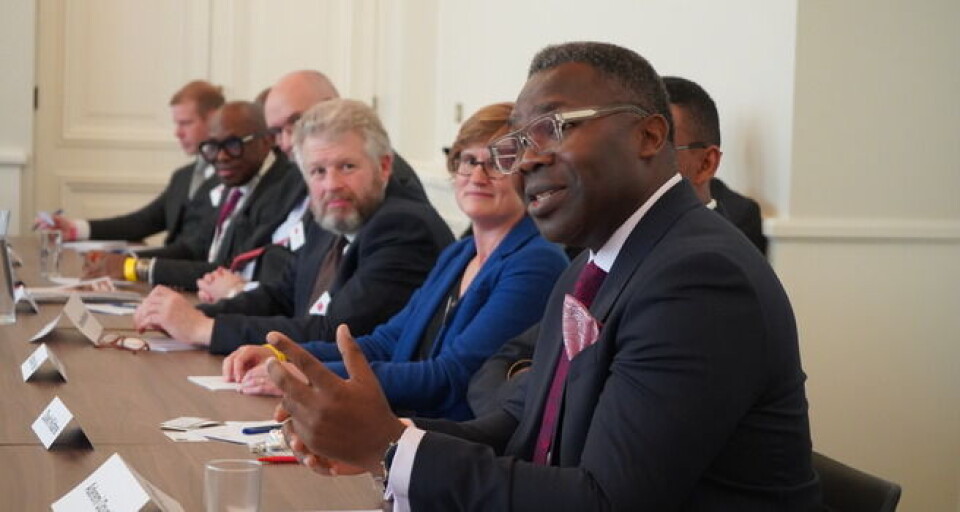Over the next two weeks, in a series of articles, four attendees to the event will reflect on the topics discussed, providing insight into their jurisdictions and the value of events like these in fostering international collaboration.
The topic of the roundtable discussion was the African energy disputes sector. As many countries strive for energy independence, the size and frequency of energy projects is growing, and so are the number of disputes. Africa Legal and UK Ministry of Justice GREAT Legal Services wanted to explore the key trends that create these projects and, in turn, disputes among the parties.
The GREAT Legal Services campaign helps to connect UK legal professionals to their counterparts across the world, providing a platform for discussion and the sharing of perspectives and knowledge. For this event, a diverse range of voices were drawn from across Africa to provide insight into the challenges in their jurisdictions. They, and a select group of UK lawyers, discussed the role legal experts have in influencing trends and practices in the African energy sector, as well as the benefits, challenges and opportunities of international and local counsel working in partnership. Attendees also explored efficient dispute-resolution mechanisms and the role of practitioners in shaping governmental support.
Sarah McKenzie, partner at Webber Wentzel, shared her insight into South Africa, a growing and competitive market, and the importance of events like these to facilitate discussions on how law firms can shift African nations to more sustainable energy provision. “The disputes in our market are currently being run against the backdrop of an energy crisis and the extreme pressure that the urgent need for a resolution to that crisis brings,” she said. “Inefficiencies and delays in the resolution of disputes have the potential to derail progress in resolving the crisis, and careful management is critical.”
Nigeria’s legal and regulatory landscape offers some unique challenges when it comes to resolving energy sector disputes. Dayo Adu, Managing Partner of Famsville Solicitors and a specialist on Nigeria’s energy sector, shared some of his insights on how to manage these disputes and the value of collaborating with international counsel.
“With the enactment of the Arbitration and Mediation Act, Nigeria joins Singapore and Hong Kong in expressly providing for third-party arbitration funding, so in future we may experience third-party funded arbitral disputes and mediation in the sector,” Adu noted.
Dawit Kidane, Principal Managing Partner at DABLO Law Firm LLP, highlighted both the unique challenges and emerging opportunities in Ethiopia in light of increasing international investments and commitments to sustainable energy development. He also noted the importance of engaging in policy advocacy, and suggested that lawyers advocate for alternative dispute resolution mechanisms specific to the energy sector and promote investor-oriented bilateral investment treaties.
One of the key contributors at the Africa Energy Dispute Resolution Roundtable was Robert Wheal, Partner at White & Case, whose insights provided a deeper understanding of the complexities of energy disputes, particularly those involving African parties.
Wheal emphasised the importance of trust and equality in the complex interplay between local expertise and international experience. “When you work with African counsel it needs to be based on a proper division of responsibility that accords both firms proper roles,” he said.
Clemence Prevot from Jus Mundi was also present and used the opportunity to showcase the findings from the 2023 Energy Disputes Report.
The event built a solid foundation for important discussions with decision makers, with participants including high-level representatives from some of Africa’s top law firms engaged in this space, as well as partners from other international law firms.
Stay tuned over the next two weeks for the rest of our series. If you want to find out more about the Africa Legal and MoJ partnership you can read about our collaboration on our free online courses on Fundamentals of Effective Negotiation, Legal Writing and Cross Communication Skills.
To join Africa Legal's mailing list please click here

